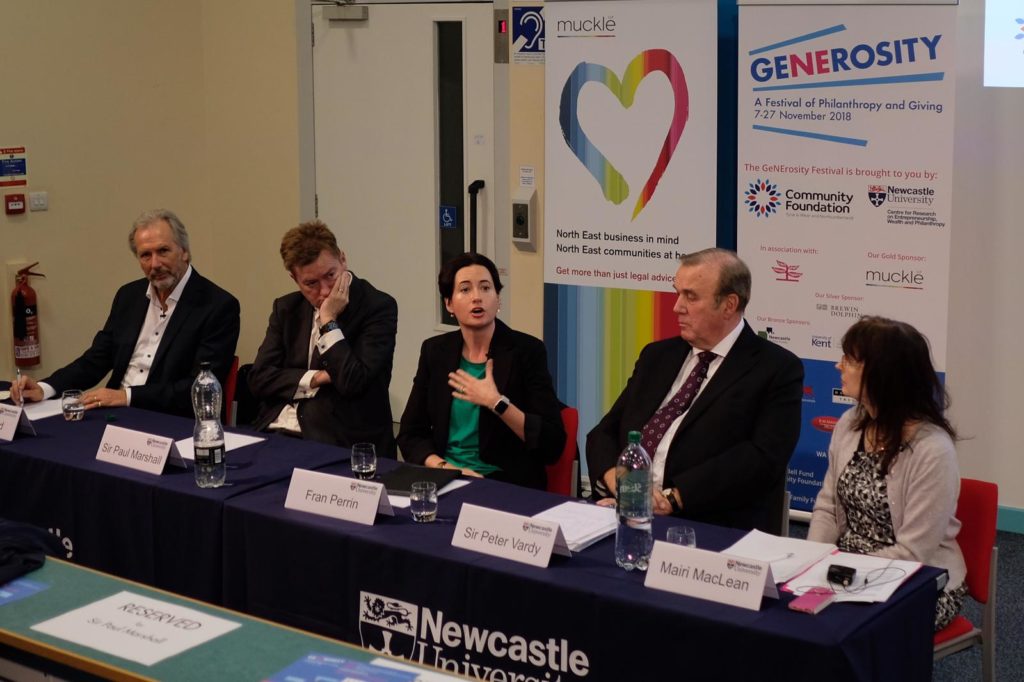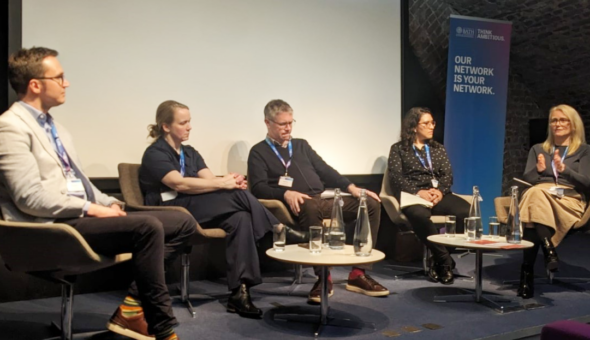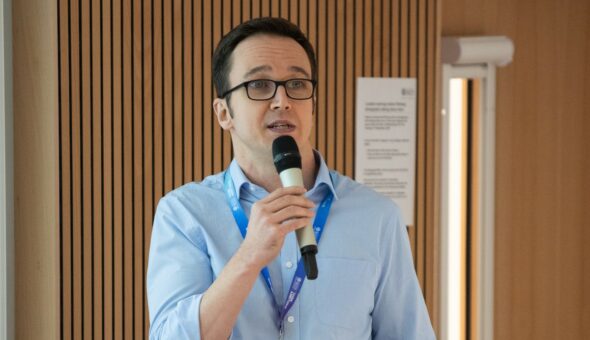What is transformational philanthropy, and what does it look like in practice? In November 2018, Professor Mairi Maclean of the University of Bath School of Management chaired a session on this topic as part of a wide-ranging GeNErosity festival of philanthropy taking place in the North East over three weeks and featuring 50 different events. The roundtable, held at Newcastle University, featured four transformational philanthropists, all of whom have helped to make a major difference through their giving. Here, Mairi reflects on the discussions that took place.
Transformational philanthropy is about giving which embraces a viable theory of change. It does so by implementing organizational models which are sustainable, leveraging resources through working in partnership with others, and scaling up operations to benefit more people.
The four philanthropists who graced our symposium were: Bill Holroyd, CBE, founder of OnSide Youth Zones; Sir Paul Marshall, Chair of ARK Schools; Fran Perrin, Founder of the Indigo Trust and Chair of 360Giving; and Sir Peter Vardy, Chair of The Vardy Foundation and Safe Families for Children. Attendance topped 200 people, with a further 120 following it on a twitter feed.

Youth zones
The symposium began with an introduction by Professor Julie Sanders, followed by one by myself, after which each of the speakers gave a presentation. A roundtable-style Question & Answer session then ensued. The speakers’ stories were moving and inspirational. Bill Holroyd found his ‘calling’ as a philanthropist when a friend rang him, asking him if he’d like to be Chairman of a boys and girls club. As Bill put it, "I didn’t know there was a problem until I saw the answer". Kids, he realised, have nowhere to go and nothing to do – being criminalised, marginalised and ghettoised. Bill’s charity, OnSide, provides buildings which are great places for kids to go, open when they need to be open. To date, 12 Youth Zones have opened in the UK, with ten more currently under construction.
Harnessing altruism
The main objective of transformational philanthropy is not to give money away per se, but rather to solve problems by harnessing altruism and the voluntary spirit. Sir Paul Marshall has directed his philanthropic activity at educating young people, recognising that if a child attends a poorly performing school, he or she will struggle to get out of that environment. In his experience, the hardest schools on the country are those located in white, working-class coastal communities; immigrant communities often do considerably better. Whereas 30-40 years ago, there were still jobs with dignity to be had if you were poorly educated, this is no longer the case. Britain has a long tail of low-skilled employees, with many leaving school without basic skills. Paul’s goal is to close the gap between disadvantaged schools and the rest by demanding better.
How to give well
Fran Perrin focused in her presentation on the difficulties of giving money away well, often in the dark about who else is giving what. Philanthropy, she argued, is an extremely inefficient market, with no FTSE 100, no Financial Times, no stock exchange, no TripAdvisor to serve as a guide. The whole process, she argued, is ridiculously hard. Grant funding has not modernised in any meaningful way since Andrew Carnegie penned The Gospel of Wealth in 1889. In answer, Fran has founded 360Giving, which is all about publishing philanthropic giving openly to a common standard, discovering who’s funding what and letting others know about it, so that money can go to where it’s needed most.
Safe Families for Children
Our final speaker at the symposium was Sir Peter Vardy. Having sold his car business in 2006, Peter determined to devote the rest of his life and money to social action programmes. His advice to would-be philanthropists is simple: find something that excites you, or makes you angry, and do something about it. Peter works with Young Offenders Institutes, trying to use the experience he’s gained in life and business to improve the lives of young offenders when they go back into the community. Often, they have no family to go to, no job. They need a home to go to, a community to belong to, and meaningful work. Targeting the root problem, he founded Safe Families for Children in the UK, to help stabilise families in need by providing them with volunteers who serve as ‘resource friends’ – a would-be aunt, uncle, or family member, someone to walk alongside them, help them get a pushchair, or a carrycot. Safe Families for Children have helped to reduce the flow of looked-after children who, through going into care, often end up in prison; thus helping, for some, to break the cycle of offending.
Targeted giving
The question and answer session that followed the speakers’ presentations was riveting – the audience was fully engaged, and a flow of diverse questions and answers ensued. I have no doubt that those who were present, in person or through Twitter, were inspired by their motivational stories of the transformational difference that targeted giving can make.
Header image by rawpixel
Responses




Full marks to the team at Newcastle University for staging this unique event. There is a new wave of philanthropy, rising up from communities who are realising that the days of the nanny state are over and local people are coming together to sort out their issues and services. The seminar and festival was a wonderful platform to shine a light on the way forward and to encourage philanthropists to join in.